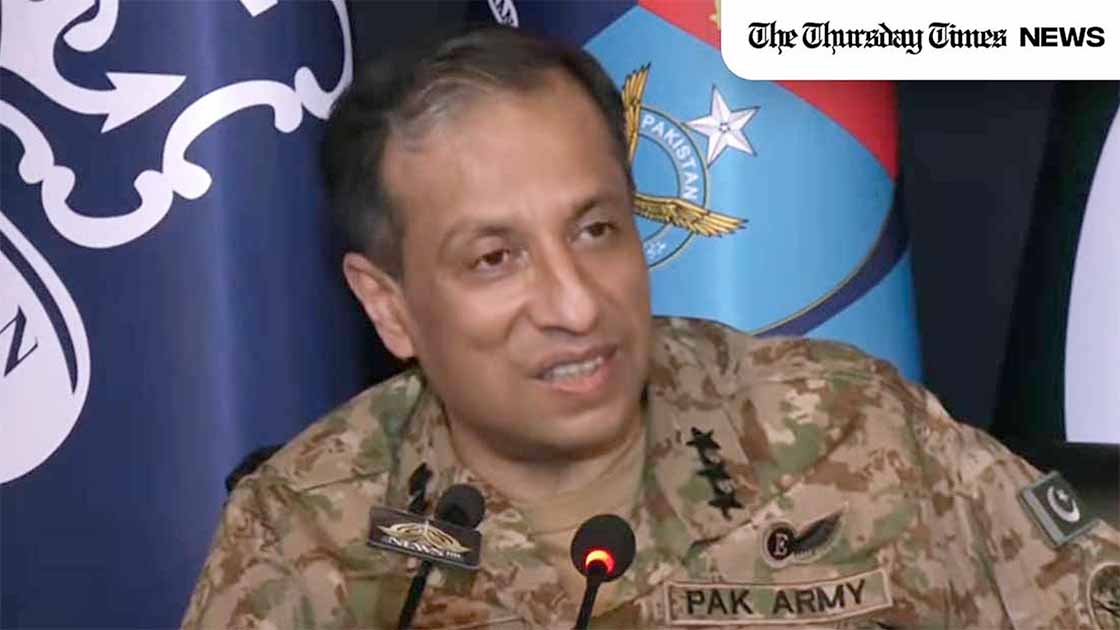RAWALPINDI (THE THURSDAY TIMES) — Pakistan’s military has signalled a more strategically calibrated approach to security, governance, and diplomacy, as the Director-General of Inter-Services Public Relations, Lt Gen Ahmed Sharif Chaudhry, briefed journalists on the country’s security posture, foreign partnerships, and institutional challenges.
Lt Gen Ahmed Sharif Chaudhry said militant and criminal networks had been “substantially dismantled,” though their complete elimination would depend on the “sincere and coordinated implementation” of the National Action Plan. He framed security as inseparable from governance, warning that administrative weaknesses in provinces such as Khyber Pakhtunkhwa continued to “undermine the sacrifices of soldiers.”
On foreign relations, the spokesperson reaffirmed that Pakistan’s engagement with global powers was guided purely by national and public interest. He noted that mineral development and mining required “long-term patience and heavy investment,” adding that Pakistan was exploring partnerships with countries including China, the United States, and Saudi Arabia, provided such cooperation aligned with the country’s interests and ground realities.
Addressing a recent Financial Times report, Chaudhry said the article referred to “public-private partnership proposals” and not to any secret strategic realignment. He underscored that Pakistan’s coastal belt held vast commercial potential, but decisions regarding port development or investment would be made strictly through a national interest lens.
Reiterating Islamabad’s long-standing policy on the Middle East, he confirmed that Pakistan’s stance on Israel remained unchanged and that the state “does not recognise Israel.” The immediate priority, he said, was halting the ongoing humanitarian catastrophe in Gaza and ensuring relief reaches those affected.
The army spokesperson also addressed recent terrorist attacks in Khyber Pakhtunkhwa, attributing their recurrence to governance gaps and institutional fragility. “Structural reforms and administrative efficiency,” he said, “are essential to protect the gains made through security operations.”
When asked about the Nobel Peace Prize, Chaudhry remarked that while many individuals truly deserved such global recognition, nominations made for “controversial groups or personalities” risked undermining the award’s credibility.
Responding to questions about Pakistan’s “hybrid system,” he emphasised that the army functions strictly within constitutional bounds and supports civilian authorities only when formally requested. He cited the National Command and Operation Centre, established during the pandemic, as an example of institutional collaboration that produced “positive outcomes.”
On the recently concluded Pakistan–Saudi defence cooperation framework, Lt Gen Chaudhry clarified that it was “not directed against any third party” but aimed at strengthening mutual defence production, preparedness, and technological exchange. He said the pact reflected “public sentiment, mutual trust, and a shared long-term strategic vision.”
Ahmed Sharif Chaudhry stressed that Pakistan’s state institutions were working with caution and transparency to balance national security, economic growth, and public welfare. He underscored that progress required coherence among the military, government, and society in pursuit of collective national resilience.





